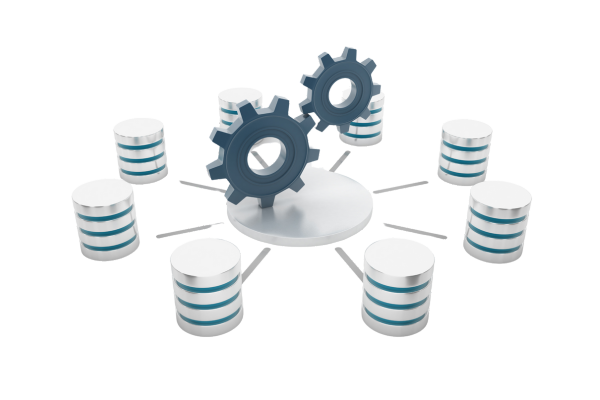A Structured Digital Transformation Programme In Transportation
Making Waves With Agile - Digital Transformation
How Intergence helped a well-known transport company modernise and transform its business
Our client is a long established ferry company that provide passenger and freight services.
Over the past few years, its fleet has grown to include a variety of vessels, including conventional, passenger, freight and high speed.
It now carries millions of passengers and freight vehicles each year.
The Challenge
In recent years, the company has faced growing competition from budget airlines and high levels of dissatisfaction.
To retain and expand market share, it was essential for our client to improve both its offering and to reinvigorate its customer service experience.
Unfortunately, there was a major obstacle – the company’s IT infrastructure.
The usual plethora of unintegrated systems, common to many organisations, relied on a lot of manual intervention and unstructured processes that led to needless mistakes and time consuming troubleshooting.
Worse, multiple databases made it all but impossible to integrate customer information in one place, leading to lost opportunities.
To address the issue, our client initiated a five-year plan to achieve reputational recovery and growth with digital transformation at its heart.
Within 18 months, the company had identified some 300 changes it needed to make.
This in turn created a new problem: how to turn so many insights into a realistic action plan for change?

The Solution
It was at this point that the company turned to Intergence for help.
Our first step was to understand our new client’s challenges, their customers and what they wanted to achieve.
We listened closely to their aims and ambitions, from achieving reputational recovery and streamlining core operational processes through to achieving a single view of the customer and expanding commercial opportunities such as offering seat selection and package holiday’s in the UK.
Armed with this understanding, we began a process of strategic discovery, working closely with the company.
With its help, we identified the core business goals it wanted to achieve over the next five years and developed a pragmatic plan for achieving them via digital transformation.
Within 3 months we had created a shared plan for change supported by a realistic ROI.
The structured digital transformation programme we created was divided into a number of major workstreams, each of which was fundamental to the transport company's business goals.
They included:
E-commerce
Making the online customer journey experience easier and more enjoyable, increasing commercial opportunities such as selecting their own seat, choosing a package holiday and giving customers access to the online booking service via a mobile app.
Operational Processes
Automating and streamlining core operational processes, such as crew management, HR, scheduling and the reporting of accidents and incidents, through to extending a self-serve approach across the business giving staff the opportunity to update and manage their own personnel affairs and commercial customers the ability to make their own bookings on vessels.
IT Comms Infrastructure
Reducing costs, improving speed and connectivity as well as enabling remote working by modernising the company’s physical network infrastructure, migrating on-premise services and applications to the cloud and improving connectivity on vessels at sea.
Single View of the Customer
Implementing Dynamics 365 CRM to create a single view of the customer, automating processes such as marketing, group sales and customer complaints handling and improving the customer experience as well as giving staff the ability to continue serving customers throughout COVID-19 by replacing their old on-site telephony system, with a cloud-based solution fully integrated with CRM.
Yield Management
Implementing a revenue management system to allow the firm to accurately forecast demand for customers and use data, reports and alerts to inform and adjust prices to maximise yield.
Freight
Reducing costs, increasing efficiency and expanding market opportunities by digitizing freight management operations, end-to-end, from giving freight customers the ability to make their own bookings and upload documentation digitally, through to a tablet-based app, designed to plan, load and offload vehicles on vessels efficiently and effectively.

The Impact
Within a short time frame, our simple, pragmatic approach founded upon the principles of agile and business change helped our client build the foundations to drive business growth, begin their journey to reputational recovery and achieve significant opportunities, to reduce costs and increase efficiencies.
In addition the programme has changed our client’s culture from seeing digital transformation as a problem that needed to be surmounted, to something it regards as an opportunity – and armed with flexible infrastructure and clear insight into its internal and customer data, it can now find new ways to improve its offering, customer service and business processes.
We are continuing to help our client by managing their IT Infrastructure and telephony solution, which has allowed them to focus on maintaining the supply of essential services throughout the COVID-19 crisis.

